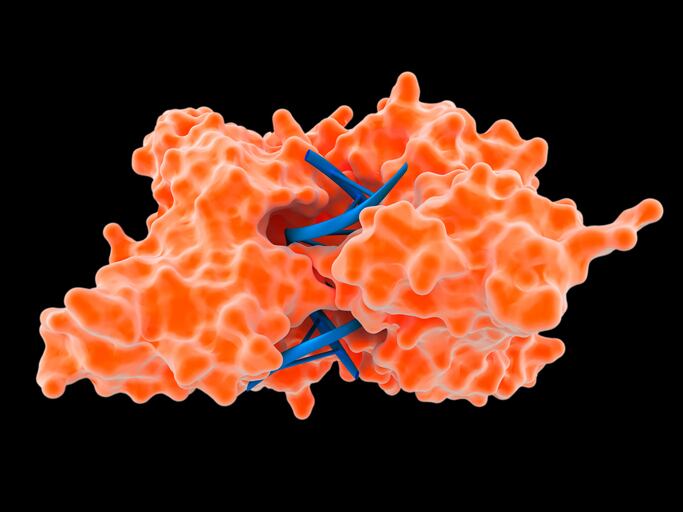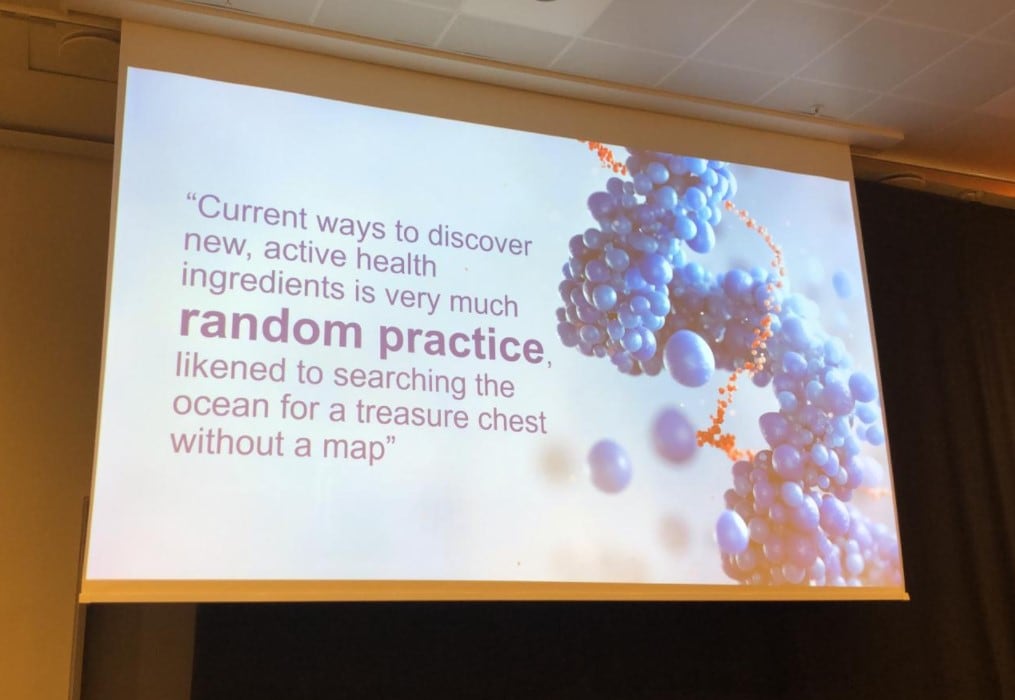Gideon Lapidoth, PhD, is a co-founder the company, which opened its doors in Tel Aviv in 2020. Lapidoth was trained in computational biology at the Weizmann Institute of Science in Rehovot, a Tel Aviv suburb.
Lapidoth said Enzymit is applying new tools to the design of novel enzymes that can rapidly sort through the many different potential configurations. The base approach is not new, he said.
“Computational protein design has been around for about 20 years,” Lapidoth told NutraIngredients-USA. “It started with proteins as therapeutics, such as antibody design.”
Absurd number of possible configurations
Enzymes are massive protein molecules and as such have many different ways they can be assembled. If fact, the quantifier ‘many’ doesn’t quite capture it. The theoretical number of potential configurations — 10 raised to the power of 200 — borders on the absurd. While that number is greater by many orders of magnitude than the commonly accepted range for the number of atoms in the observable universe, that’s what the math shows, Lapidoth said.
It’s obviously impossible to sort through so many variables, so enzyme developers in the past have taken clues from what works in nature and have worked to produce those same enzymes endogenously. At the most, companies were slightly tweaking known configurations, Lapidoth said.
AI finds new configurations fast
Now, with Ezymit’s AI platform which learns and gets faster as it goes, many more configurations can be tested starting from tried and true molecules, he said.
A key target for the technology is to cut the cost of the production of food, beverage and supplement ingredients, Lapidoth said. An early target was allulose, a promising non nutritive sweetener. The molecule is about 70% as sweet as fructose, but the human body lacks the enzyme to break it down, so it contributes no calories, Lapidoth said.
“Chemically it’s identical to any other sugar molecule, but because it’s rare in nature, no mammal has evolved an enzyme to break it down. It can be used one for one for sugar and it browns like sugar. But it has been expensive to produce. We have developed an enzyme to produce it that can make it competitive in cost with sugar,” he said.
Lapidoth said Enzymit’s innovation extends beyond just a faster and better way to devine new possible configurations. Getting the right enzyme is only half the battle.
Phosphate power
The other half is designing the physical process and finding a cost effective energy balance. Enzymatic processes in the body employ ATP, which is expensive to produce endogenously, Lapidoth said.
Lapidoth said he and his fellow researchers took a tip from the study of paleobiology, looking at a time in the history of life on Earth before ATP was first synthesized in living tissues. Enzymatic reactions took place before then, but were powered differently.
“We looked at the energy stored in bonds of inorganic phosphates,” Lapidoth said. “The reason we knew this was possible is because prehistoric bacteria used those kind processes. ATP is a relative newcomer.”
Gel matrix filter
The new enzymes powered by inexpensive phosphates are then fixed to a proprietary gel matrix that functions as a filter. Feedstock is pushed through the filter and desired molecules pop out. At least that’s the short version.
Compared to fermentation process, Lapidoth said the new technology promises greater reproducibility and tighter control of the outputs. One of the dirty little secrets of fermentation production is that the microorganisms can spit out additional constituents to the target molecule which must then be filtered out of he final product. And the genes of microorganisms can drift over time, Lapidoth said. Enzymes are inanimate, and the number of cycles they can withstand before degrading can be tested and verified with accuracy, he said.
“You can have such exquisite control of the process,” he said.
In addition to allulose, Lapidoth said Enzymit has its eye on the enzymatic production of human milk oligosaccharides as well as other dietary ingredients. The company is also devlopoing a process using captured CO2 and converting it back to useful polymers and sugars offering carbon negative production at costs that rival those of current production means.




